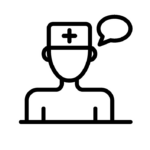Guelph (Virtual Therapy)
A Safe Place to Grow
Our Psychologists offer comprehensive virtual therapy sessions to individuals residing in Guelph, Ontario, and surrounding areas. Our licensed therapists provide a safe and supportive space to help individuals share their mental health struggles as they work through life’s challenges that affect their ability to excel in educational and professional settings—as well as in other aspects of their personal life. Each individually crafted therapy session provides guidance, clarity, and complete confidentiality. We are not meant to journey this life alone. The mission of each online therapy session is to create a warm, collective experience that will help you or your loved ones navigate life with new tools, mental wellness, and knowledge.








